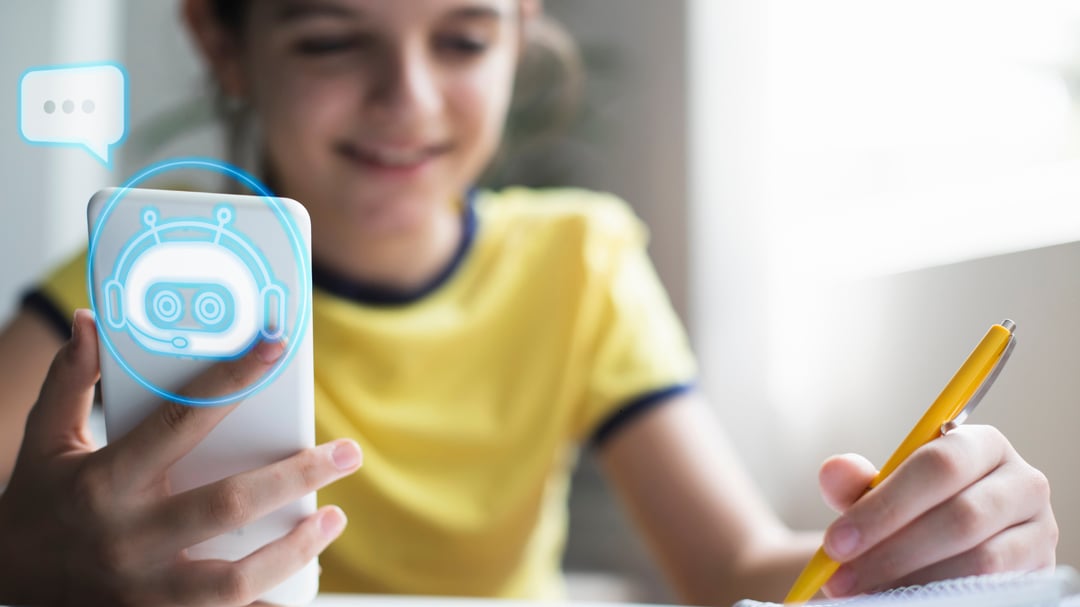"Education doesn’t need to be reformed, it needs to be transformed. "
-Sir Ken Robinson
It’s been two decades since Sir Ken Robinson urged us to re-think education and yet our schools remain largely unchanged. In many cases, the daily tasks of students haven’t changed in over 100 years.
Sir Ken is not alone. Researchers and global think tanks agree: there are serious gaps in education, curricula reform is imperative; the impact of technology on student learning must be examined.
One thing is clear: today’s students need different skills. Reading, writing, and mathematics are not enough. Competencies like problem solving, critical thinking and collaboration, often referred to as “21st century skills”, are proving vital.
“We should not focus so much on academic content but on developing skills to adapt to the world.”
~ Robert J. Sternberg, Psychologist, Professor of Human Development, Cornell University
This blog will explore the 21st century skills so valuable in today’s demanding world, changing workforce, and unpredictable economy. We’ll also explore - as with all learning - how our brain is at the core of these competencies. Finally, we’ll see that our brain’s extraordinary capacity to change, may very well be the lynchpin to Sir Ken’s vision.
Identifying 21st Century Skills
The Organisation for Economic Co-operation and Development (OECD) has been instrumental in identifying global issues and opportunities. Included in their recommendations is equipping students with capacities to:
-think critically
-combat misinformation
-untangle complex and competing narratives
-communicate effectively towards social inclusion
The OECD also identifies that students’ well-being should be valued as much as academic performance.
The World Economic Forum (WEF) reports similar themes. While literacy remains a foundational skill, strong literacy must now span across numeracy, science, technology, finance, culture and civics. 21st century learners, according to WEF must embody:
- critical thinking
- creativity
- communication
- collaboration
Building a 21st Century Brain
As educators and school leaders – you know this instinctively. You also know the occasional student who presents with strong interpersonal and conflict resolution skills. We tend to call them “natural leaders”.
What may be new to you, is that cognitive capacities underlie these competencies - specific cognitive functions that determine students’ experiences. Each student’s unique brain shapes the degree to which they develop fundamental 21st century skills.
In the last few decades there’s been a tremendous shift in the science of learning. Let’s look at three principles that can – and should – be catalysts for an educational revolution:
Principle 1: Everything We Do, Everything We Learn – Occurs Due to Our Unique Cognitive Profile
As unique as our fingerprints, our brains are made up of countless networks. Amongst these are specific cognitive functions, each designed to complete very specific jobs within learning and performance. At different points of our development, key functions are called upon within the learning process. The more we understand our students’ cognitive profile, the more we can customize their experiences.
Principle 2: Student Well-being is Valued - Our Mental Health is Shaped by Our Experiences
Thankfully, mental health has been receiving more attention these days, particularly in the educational field. It’s clear that mental health plays an intimate role in students’ readiness and ability to learn, in their confidence, self-concept, and resilience. Building and sustaining positive mental health must be part of any conversation about educational reform.
Principle 3: Our Cognitive Profiles Can Improve – Targeted Neuroplastic Programming Can Enhance Learning Potential and Well-Being
Neuroplasticity is our brain’s ability to change. This change can be negative – think addiction or chronic stress. It can also be harnessed for the better. With neuroplastic training, brain change can be positive, and enduring. Connections can strengthen, cognitive functions can sharpen. In turn, learning and performance can be enhanced. Stronger social and emotional health can be reached.
With knowledge and application of these principles, educational systems can evolve. 21st century skills require a 21st century brain: a brain capable of flexibility, strong executive function, critical thinking and reasoning abilities, communication, and resilience. Let’s examine how that brain can be built.
Brain Training Within School Programming
Effective neuroplastic programming, like the Arrowsmith Program, has been proven to measurably affect brain change, and change the learning experiences of its participants. Through scientific principles of neuroplastic change, along with facilitator support, tracking and reporting technology, schools and educators can play an essential role in raising students’ cognitive capacity.
Evidence and Outcomes
In select schools around the world, the educational revolution has already begun. Neuroeducation is a reality, not a theory.
In a growing number of schools in New Zealand, Canada, United States and Spain, educators have integrated daily cognitive exercises into the school day. Teachers are trained to facilitate targeted cognitive programs best suited for their students’ developmental stage. For 30 minutes a day, students are stimulating and strengthening cognitive functions related to:
- problem solving
- judgement and decision making
- communication
- non-verbal communication and reasoning
- processing speed and conceptual understanding
- reasoning
- cognitive flexibility
- working memory
- executive functioning
- attention
- motor planning essential in reading and writing
- mental calculations critical for numeracy
Students learn ’how to’ complete these exercises, and ‘why’. Like burgeoning neuroscientists – they identify which networks of their brain are involved in following instructions, to complete a math problem, what controls emotions – and ultimately, how to control their own.
They also come to dismiss the notion of some being ‘smart’ and others less so. We all have a brain, and we can train it to become stronger. This powerful growth mindset filters throughout their lives.
Broader Implications for Schools and Students
Other studies have shown increases in academic and cognitive scores, a decrease or elimination in resource support, and for those with learning difficulties (who may have been involved in multiple cognitive exercises daily), overcoming the learning disabilities that were causing struggle, extra resources, and a burden to self and to those around them.
Social-Emotional Health and Impact
Recall OECD’s report: that student well-being should be valued as much as academic performance. Educators and school leaders know this, strive for this, and often, are challenged by this.
Consider this – our mental health is shaped by our experiences. Our experiences are shaped by our brains. What happens then, when we shape our own brains?
Research at the University of British Columbia concluded students in a cognitive program experienced:
- greater sense of well-being
- more open growth mindset
- increased sense of locus of control
- increase in social and leadership skills
- greater ability to focus and attend
- reduction in anxiety and depression
- positive trend in reduction of cortisol (stress hormone)
With stronger cognitive capacity, they became agents of change in their own lives, and were happier and emotionally healthier for it. A powerful ingredient for a 21st century brain.
"The fact that Arrowsmith trains the brain processors that make possible reasoning and rationality, is arguably one of the most important positive developments one could imagine for our world, with its complex problems.”
~ Norman Doidge, Author of The Brain That Changes Itself
Be the Change You Wish to See: Neuroplasticity in the Classroom
As an educator, you can observe the changes in science and technology. Or, you can harness it. You can understand cognitive processes at play during students’ learning efforts, and – importantly, you can facilitate their growing cognitive capacity. You can prepare them for life – for the 21stcentury.
"We cannot continue teaching each new generation of children like the previous one"
~ Niall Ferguson, Scottish historian and educational expert
Arrowsmith offers professional development sessions for school teams and professionals who want to learn more about the brain’s role in learning, and how cognitive training can transform the student experience.
Building 21st century brains means preparing students to be lifelong learners, to solve personal, local and global challenges. To make a positive, and lasting, impact on the world.
Practical applications of brain plasticity combined with creative and experiential learning opportunities, allows schools, as Sir Ken urged, to not merely reform, but transform.
For school communities ready to innovate their own programming, there are a range of solutions that equip your students with the ability to achieve a lifetime of professional and personal fulfillment. Educators and school leaders are welcomed to contact us to discuss options.
Tags:
Neuroplasticity
September 28, 2023



